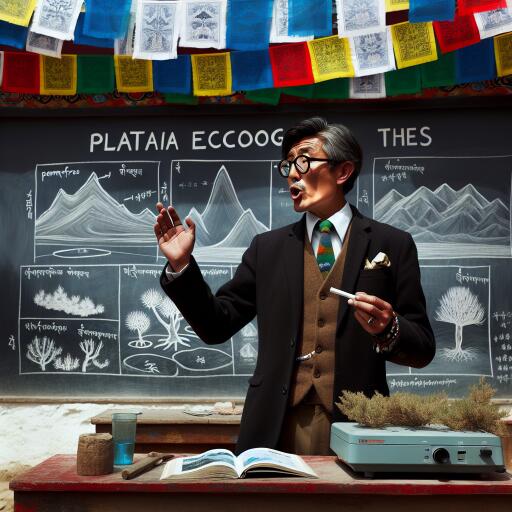
Xizang Professor Champions Plateau Ecology
In the heart of Xizang, a professor with a profound dedication to the ecological well-being of the Qinghai-Tibet Plateau is making significant strides toward preserving its unique environment. As a distinguished member of the National People’s Congress and an esteemed faculty at the Tibet University’s School of Ecology and Environment, his efforts are not only shaping academic discourse but also influencing legislative policies and environmental practices.
The professor’s primary focus has been on urging national policymakers to amplify the development of ecological monitoring systems across the Qinghai-Tibet Plateau. He advocates for a holistic approach that prioritizes the plateau’s innate ecological succession processes and champions natural restoration methods, using artificial means only as a secondary option. Through his work, he aims to bolster scientific protection measures and enhance the governance of the plateau’s ecosystem to preserve its natural and ecological beauty, ensuring a harmonious coexistence between nature and the local communities.
This year, amid significant political gatherings, he has unveiled proposals aimed at fostering a national mindset towards ecological civilization, particularly concerning the plateau. His expertise in ecology is driving these recommendations, focusing on the strengthening of wetland monitoring systems to establish a robust ecological security barrier.
Beyond his legislative journey, he is an influential figure in academia. His dedication was evident as he spent the winter break overseeing his students’ research endeavors, ensuring they maintained a high standard of scholarly excellence. Through field inspections and direct engagement, he instills a thorough research methodology among the next wave of environmental scholars.
His proposals have previously led to tangible advancements in Xizang’s ecological research infrastructure, such as the development of the Yani Wetland. This project marked the inception of the area’s first national wetland ecological field station, supported by considerable funding from the government. This not only underscored the feasibility of his suggestions but also demonstrated the tangible impact of well-conceived legislative proposals on ecological research and conservation.
Looking ahead, the professor’s vision is to cultivate an ecological civilization on the plateau, leveraging the region’s unique geography, climate, and biodiversity. The Qinghai-Tibet Plateau, often referred to as the “Third Pole of the Earth,” is a critical area for China’s ecological security, housing diverse ecosystems such as forests, grasslands, wetlands, and deserts. These form the backbone of China’s ecological strategy and are vital for maintaining global biodiversity.
Xizang’s commitment to ecological stewardship has led to significant achievements in environmental restoration and protection. Efforts have been intensified to expand forest coverage, manage and rehabilitate degraded grasslands, and enact stringent regulations to mitigate the impacts of mining activities. These initiatives have been pivotal in enhancing the plateau’s ecological stability and sustainability.
The region has been proactive in implementing various environmental protection and restoration projects, setting a model of ecological conservation that blends traditional knowledge with modern scientific practices. As the professor’s work gains more traction, it is clear that the path to ecological resilience and sustainability lies in a balanced, informed, and comprehensive approach to environmental stewardship.





Leave a Reply